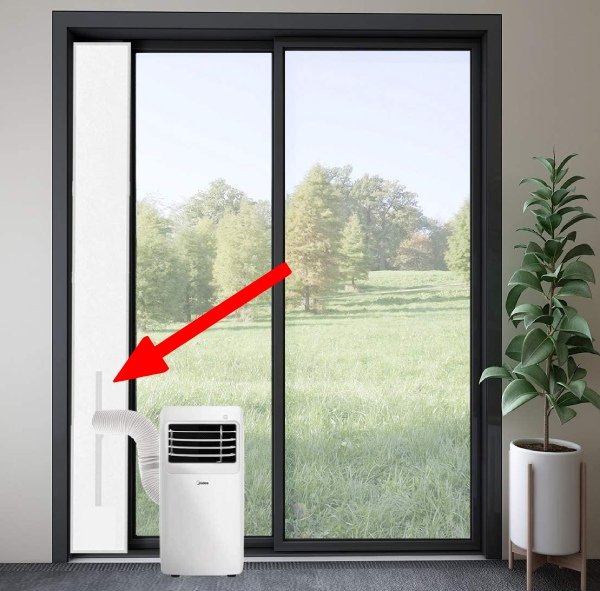Do Air Conditioners Use Freon? Everything You Need To Know
Yes, air conditioners use Freon or refrigerant to cool the air. Freon is a brand name for a type of refrigerant that is commonly used in air conditioning systems. It helps in the heat transfer process, allowing the air conditioner to cool the air effectively.
Do you ever wonder how your air conditioner keeps you cool during those scorching summer months? Or perhaps you’re concerned about the environmental impact of your air conditioning system? Whether you’re a homeowner looking to understand the inner workings of your AC unit or an individual interested in air conditioning technology, this article is for you. Today, we delve into the fascinating world of air conditioners and tackle the question that’s been on many people’s minds: Do air conditioners use freon? We’ll explore the functionality of air conditioning systems, the role of refrigerants, and the environmental sustainability of different options.
Understanding the use of freon is crucial for homeowners like you, who not only want to stay cool but also want to make informed decisions about their energy consumption. With varying knowledge levels, from basic understanding to more advanced HVAC systems, there’s something valuable for everyone in this discussion.
We’ll address the confusion surrounding freon, provide insights into its impact on the environment, and offer guidance on maintaining your air conditioning unit for optimal performance. By the end of this article, you’ll have a clear understanding of the role freon plays in air conditioning systems and how you can ensure the longevity and efficiency of your AC unit. So, if you’re ready to dive into the world of air conditioning and discover the truth about freon, continue reading.
We’re about to shed light on a topic that affects us all.
Do Air Conditioners Use Freon? Understanding the Role of Refrigerants To understand whether air conditioners use freon, it’s essential to grasp the role of refrigerants in these cooling systems. Refrigerants are substances that undergo a continuous cycle of evaporation and condensation, enabling them to absorb heat from the surrounding environment and release it elsewhere. This process allows air conditioners to cool indoor spaces effectively. The Evolution of Refrigerants In the early days of air conditioning, freon, or more specifically, chlorofluorocarbons (CFCs), was the most commonly used refrigerant. CFCs were widely used due to their stability, non-toxicity, and low flammability. However, their use had severe consequences for the environment due to their ozone-depleting properties. As the harmful effects of CFCs became apparent, international efforts were made to phase them out. This led to the development of new refrigerants that were more environmentally friendly. One such replacement was hydrochlorofluorocarbons (HCFCs), which had reduced ozone-depleting potential compared to CFCs. However, HCFCs were still not ideal for the environment. In recent years, the focus has shifted towards even greener alternatives, such as hydrofluorocarbons (HFCs), which have zero ozone-depleting potential. HFCs are widely used in modern air conditioners as a replacement for CFCs and HCFCs. The Transition Away from Freon Due to the harmful effects of CFCs and HCFCs on the ozone layer, the production and import of these refrigerants have been phased out in many countries, including the United States. The Montreal Protocol, an international environmental agreement, was instrumental in driving this transition. As a result, freon, which is a brand name for a type of CFC, is no longer used in new air conditioning systems. Instead, manufacturers have shifted to using HFCs and other eco-friendly refrigerants. This has significantly reduced the environmental impact of air conditioning systems. The Environmental Impact of Freon Although freon is no longer used in modern air conditioning systems, it’s important to address its environmental impact due to its historical significance and past widespread use. Freon, specifically CFCs, played a detrimental role in the depletion of the ozone layer. The ozone layer is a protective shield in the Earth’s stratosphere that filters out harmful ultraviolet (UV) rays from the sun. When CFCs are released into the atmosphere, they rise to the stratosphere, where they are broken down by UV radiation. This process releases chlorine atoms, which then react with ozone molecules, leading to ozone depletion. The depletion of the ozone layer has serious consequences for human health, as increased UV radiation can cause skin cancer, cataracts, and weakened immune systems. Additionally, it has negative effects on ecosystems, including damage to marine life, crops, and natural habitats. Fortunately, the awareness of these detrimental effects and the implementation of international agreements have resulted in a significant reduction in the use of ozone-depleting substances like freon. Maintaining Your Air Conditioning Unit While freon may no longer be used in modern air conditioners, it’s still important to properly maintain your AC unit to ensure optimal performance and energy efficiency. Here are some key tips to keep in mind: Regular Maintenance Schedule regular maintenance visits with a professional HVAC technician to inspect and service your air conditioning unit. They can check for any leaks, clean the coils, and ensure that the refrigerant levels are appropriate. Regular maintenance helps identify and address any potential issues before they escalate, ensuring that your AC unit operates efficiently. Proper Air Filter Maintenance Clean or replace your air filters regularly to keep your AC unit running smoothly. Dirty filters can restrict airflow, leading to reduced efficiency and increased energy consumption. Refer to your unit’s manual for specific guidelines regarding filter maintenance. Sealing Air Leaks Inspect your home for any air leaks around windows, doors, and ductwork. Sealing these leaks helps prevent cool air from escaping and minimizes the strain on your AC unit. This can lead to energy savings and improved cooling performance. Proper Temperature Settings Set your thermostat to an appropriate temperature that provides comfort without overworking your AC unit. Avoid setting it too low, as this can lead to excessive energy consumption. Utilize programmable thermostats to optimize energy usage based on your daily schedule. Upgrade to a High-Efficiency Model Consider upgrading to a newer, high-efficiency air conditioning unit. These systems are designed to operate more efficiently, reducing energy consumption and utility costs. Look for units with high SEER (Seasonal Energy Efficiency Ratio) ratings to ensure optimal energy efficiency. Conclusion In conclusion, modern air conditioners do not use freon, as it has been phased out due to its harmful effects on the ozone layer. Instead, eco-friendly refrigerants like HFCs are now used in air conditioning systems. The transition away from freon has significantly reduced the environmental impact of these cooling systems. It’s important to properly maintain your AC unit to ensure optimal performance and energy efficiency, even without freon. So, rest assured that your air conditioner is keeping you cool without causing harm to the environment.Frequently Asked Questions (FAQ)
Do air conditioners use freon?
Is freon harmful to the environment?
Can I replace freon with another refrigerant?
Are there air conditioners that don’t use freon?
Can I still use my old air conditioner with freon?
Conclusion: The Phase-Out of Freon in Air Conditioning Systems: A Positive Step Towards Environmental Impact Reduction
In conclusion, modern air conditioners do not use freon, as it has been phased out due to its harmful effects on the ozone layer. Instead, eco-friendly refrigerants like HFCs are now used in air conditioning systems.
The evolution of refrigerants, from CFCs to HCFCs and now HFCs, has played a crucial role in reducing the environmental impact of cooling systems. The transition away from freon was driven by international efforts, such as the Montreal Protocol, which have been successful in reducing the use of ozone-depleting substances.
While freon is no longer used, it’s important to address its environmental impact due to its historical significance and past widespread use. Freon, specifically CFCs, played a detrimental role in the depletion of the ozone layer, which has serious consequences for human health and ecosystems. However, the awareness of these effects and the implementation of international agreements have resulted in a significant reduction in the use of ozone-depleting substances.
To ensure optimal performance and energy efficiency, it’s important to properly maintain your air conditioning unit, even without freon. Regular maintenance visits with a professional HVAC technician, proper air filter maintenance, sealing air leaks, setting appropriate temperature settings, and upgrading to a high-efficiency model are all key factors to consider. In summary, the phase-out of freon in air conditioning systems has been a positive step towards reducing the environmental impact of cooling systems.






